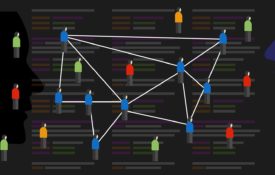-
Mindfulness Hurts. That’s Why It Works.
Some years ago, a friend told me that his marriage was suffering because he was on the road so much for work. I started counseling him on how to fix things—to move more meetings online, to make do with less money. But no matter what I suggested, he always had a counterargument for why it was impossible. Finally, it dawned on me: His issue wasn’t a logistics or work-management problem. It was a home problem. As he ultimately acknowledged, he didn’t like being there, but he was unwilling to confront the real source of his troubles. Many of us, even if we don’t travel for work, do something similar by avoiding spending time in the home of our own mind.
-
On the Phone, Alone
Many measures of adolescent mental health began to deteriorate sometime around 2009. It is true of the number of U.S. high-school students who say they feel persistently sad or hopeless. It’s also true of reported loneliness. And it is true of emergency room visits for self-harm among Americans ages 10 to 19. This timing is suspicious because internet use among adolescents was also starting to soar during the same period. Apple began selling the iPhone in 2007. Facebook opened itself for general use in late 2006, and one-third of Americans were using it by 2009.
-

Virtual News Briefings at APS 2022 Convention
Journalists are invited to attend two virtual media briefings during the 2022 APS Annual Convention.
-

New Content From Perspectives on Psychological Science
A sample of articles on behavior genetics, methods beyond experimentation, women and sex, clinical research, kinds of replication, ideology, COVID-19 as an opportunity to reimagine psychological science, and the measurement of consciousness.
-

Treat Implicit Bias as a Public Health Problem, New Report Recommends
To turn the tide on the biases that perpetuate social injustice, the latest issue of PSPI recommends that governments and institutions treat implicit bias as a public-health problem.
-

New Content From Current Directions in Psychological Science
A sample of articles on brain and learning, handedness in primates, cognitive modeling and large-scale digital data, language, blame, credibility in psychological science, musical synchrony, innovations in clinical science and assessment.

